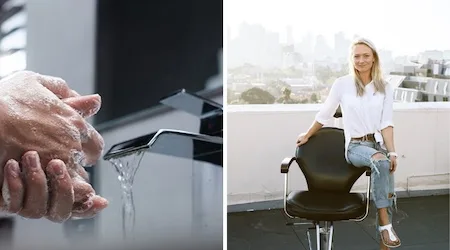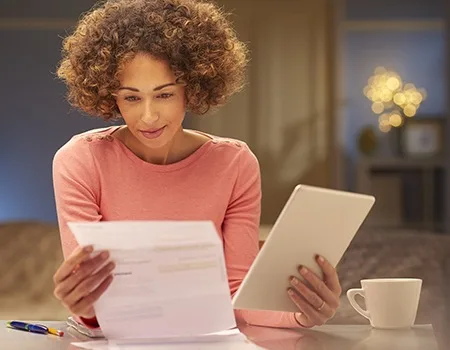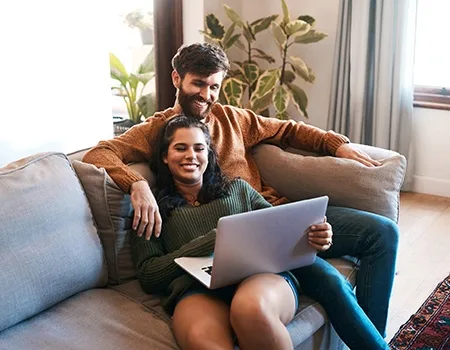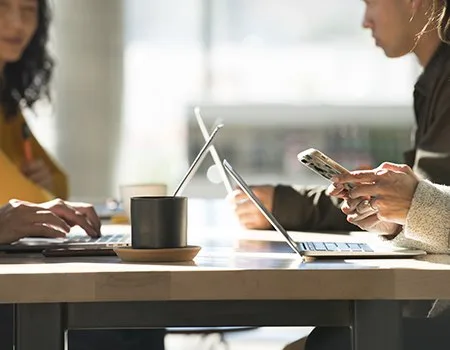Coronavirus: how can we stay protected?

Dr Izzy Smith goes through some of the key steps we can take to stay safe during the coronavirus outbreak.
From the media to Instagram, Facebook and even your well-meaning friends, there is so much information about how to prevent COVID-19 that no one would blame you for feeling confused.
However, this is where the simple measures and common sense are the most effective and important to keep you, your loved ones and the greater community safe. As a doctor at Royal North Shore Hospital in Sydney, I wanted to share some practical advice I apply everyday.
Keep in mind that this is not medical advice and is general information only. If you suspect that you've become ill, go and see a medical health professional immediately.
What will help?
Sneeze etiquette
COVID-19 spreads through respiratory droplets when we sneeze, breath, blow or rub our noses. This is why staying home if we're sick is so important, as is sneezing into our elbow in the opposite direction of other people.
Keep hands and surfaces clean
Respiratory droplets can also live on surfaces for several hours (think benches, public transport handrails, gym equipment) and go on to infect others and why keeping our hands and surfaces clean is of the utmost importance.
Everyone should be washing their hands frequently. As a doctor I lose count of how many times I was my hands per day!
Soap and warm water and vigorous rubbing for at least 20 seconds (making sure to get between the fingers and the back of the hands) will kill the virus, as will alcohol hand gel.
There has been some misinformation that alcohol hand gel will not kill COVID-19. This is not true. COVID-19 is what's called an "envelope" virus and provided the alcohol has greater than 60% alcohol, it should break down the virus envelope, which kills the virus. But you still need to be very thorough when cleaning your hands.
Wiping down surfaces, especially ones where lots of people have been (e.g. gym equipment, yoga classes, restaurants) with alcohol type wipes is also an important measure to decrease the risk of transmission. Remember, if someone with the virus breaths on something the virus can last there for several hours.
Stop touching your mouth, eyes and nose
Until you take notice of it, you would not believe how often you touch your face/mouth/nose without even realising. Our hands and faces/mouth are where germs are spread the most. By having less contact between them, we decrease the risk of both catching and transmitting the virus.
Avoid crowded spaces
For many of us, this is somewhat impossible in workplaces but aim to avoid crowded spaces unnecessarily e.g. shopping at big centres or going to concerts. This may mean missing some fun things but is an important step in trying to contain or at least detain the spread of the virus. This information is especially important to those at higher risk of serious complications (elderly or immunocompromised) and they may benefit from trying to work from home and avoiding public transport and other similarly crowded spaces entirely.
Stay home if you're sick
There has never been a better time to not be a work martyr and carry on when you're sick. Even if you have a slight snuffle or sore throat you should stay home and seek medical advice on if you need to be tested for COVID-19 or not.
Look after yourself
Being healthy isn't rocket science. Maintaining healthy behaviours should be important all the time and not just in a pandemic. These includes getting at least 7 hours of sleep per night, eating a varied diet high in fruit and vegetables, not smoking and limiting alcohol, staying hydrated and doing regular exercise as well as making sure you're up to date with vaccinations.
What won't help?
Buying every possible immune supplement/tonic/superfood
Although our immune system needs things like vitamin C and zinc, these or any other specific food or supplement won't make you immune from COVID-19. Because our bodies have never been exposed to COVID-19, even if we had the healthiest immune system on the planet, some of us will still get seriously ill from it.
This is because it will take several days for an immune response to develop, rather than a few hours, which is usually what happens when we're vaccinated or have been exposed to a virus before.
To help understand this concept, an example of this is when free-settlers came to Australia or other countries with indigenous populations who were subsequently exposed to foreign illnesses. These illnesses were often asymptomatic or very mild in the free-settlers but caused devastating loss of local indigenous populations who would have had very healthy diets and lifestyles.
No number of immune tonics or supplements would have prevented these deaths occurring as these infections were entirely new, so it was like an immune system trying to fight an army they couldn't see.
This is similar to what we're seeing with COVID-19. Unfortunately like in any tragedy, people are trying to monetise peoples fear and promoting rubbish supplements with no evidence of benefits – especially not against COVID-19 (which has only limited research or data available as it is a new virus).
A healthy diet, enough sleep, and of absolute most importance, managing our hygiene is what you need to be doing to keep yourself safe from COVID-19.
Face masks
A lot of people have been wearing personal protective equipment such as face masks to try and decrease the risk of catching COVID-19. The evidence does not support that wearing these masks will protect you from catching the virus, more their benefit is for people who have the virus to wear them to decrease the risk of transmission.
Despite government and health authorities advising that these masks are not advised for the general public unless someone is unwell or treating someone with COVID-19, they have been bought and essentially sold out at most major retailers and there is now a nationwide shortage.
This has resulted in general practices not having access to masks and thus not being able to properly triage and test potential COVID-19 patients and instead relying on referring them to already overcrowded fever clinics. Take home message: the masks don't stop people getting COVID-19 and reserving them for people who are unwell or working on the front line will provide better protection and prevention at a community level and thus decrease the chances of individuals contracting the virus.
Vaccines (yet)
Vaccine production is underway but this is a lengthy process that takes multiple steps e.g. producing a vaccine that is not only efficacious but also safe and rigorously safety tested. This process will take at least one year, if not longer. Consequently, this means being relaxed about hygiene and containment measures with the hope that a vaccine will soon be available is inappropriate and unwise.
When do I need to be tested?
I think this has been what's confused myself and the rest of Australia so much because the answer keeps changing from almost day to day. At the moment GPs have been inundated with people requesting testing for COVID19, most of whom do not require testing.
As of the 12th of March 2020 this is what the national guidelines are advising for testing:
- Anyone with a history of international travel in the preceding 2 weeks, and symptoms such as a runny nose, cough, fevers, sore throat etc.
- Anyone who has been in contact with someone with confirmed COVID19 and symptoms.
- Any health care worker with symptoms
The test is a nasal swab and results are generally back in 48-72 hours. Anyone who's been tested needs to self-isolate until the results are back.
Testing criteria (and result times) are highly likely to change in the future and local government agencies are the best source of advice as are local hospital fever clinics.
If you are at risk of COVID-19 and feeling unwell with fever or other symptoms you should present to hospital but please phone in advance so they can prepare a room and the appropriate safety equipment.
Obviously, there is a lot of understandable anxiety at the moment and as a result we are seeing a lot of people present to be tested and concerned or upset if told it's not currently required. Likewise, to face masks, its important we allocate resources appropriately and prevent running out of stock as this will what ensures lowest spread of COVID-19 for the broader community and increase the chance of us all staying safe.
Is there any misinformation floating around social media?
I am sure I am not the only one to see concerning misinformation regarding COVID-19, such as this is no more than a bad cold and people are only dying because they don't have strong enough immune system. This could be followed with a discount code for the supplements that particular non-qualified person recommends.
As I mentioned before, this is much more complex and dangerous than a simple cold and there is a lot we still need to learn about the virus. Looking after our health and immune function is important but nothing will automatically guarantee someone is safe from COVID-19. Furthermore, if we were to contract the virus, we need to not just think how it will affect us but also the numerous potential people we could pass it to.
Other concerning concepts I've seen are that it doesn't matter as it's only the elderly that are dying. I'm not sure about you but I am going to be mighty sad if my 73-year-old aunty dies from COVID-19. And younger people in their 20s and 30s have already died from this virus.
The take home would be to only refer to information from trusted sources and speak with your local government health authority such as COVID-19 hotline (1800 020 080) or local hospital for urgent information.
How do I stay informed?
The best resources are government agencies (there has been a lot of misinformation in the media) at both an international, national and state level.
The WHO has regular updates on its website, as does the Australian Government Department of Health. The US Center for Disease Control (CDC) and the European Centre for Disease Prevention and Control (ECDC) are also regularly updating their coronavirus information.
State government agencies have set up specific COVID-19 websites e.g. Health NSW and the VIC department of health have regularly updated and easy to understand information, as well as 24/7 hotlines.
On a more local level, many public hospitals have dedicated fever clinics who can offer advice as can local GP practices.
For anyone wondering about travelling, Smarttraveller.gov.au should be your current go-to source of information.
For people who want to an update while they commute to work, the ABC have created a daily podcast update called "Coronacast".
I hope this has provided some clarity on COVID-19 and helped you feel aware and alert but not alarmed. In times like these it's easy for panic to amplify into hysteria but it's important to remember that panic is not an anti-viral. The most important things we can do is wash our hands, take sensible precautions as well as other government advice and make sure a trying time brings out the best in us as a community where we show kindness and compassion and look out for those most vulnerable.
Dr Izzy Smith is a general medicine and endocrinology registrar at Royal North Shore Hospital and has particular interest in public health and exercise as medicine. She promotes evidenced based advice on exercise, nutrition and medicine and loves busting health myths and calling out dangerous fads. She is a contributor to health blogs, radio stations and media platforms, has generated a solid following within Australian health and wellness circles. She is also a passionate advocate for mental health and an ambassador for Movember.
Disclaimer: The views and opinions expressed in this article (which may be subject to change without notice) are solely those of the author and do not necessarily reflect those of Finder and its employees. The information contained in this article is not intended to be and does not constitute financial advice, investment advice, trading advice or any other advice or recommendation of any sort. Neither the author nor Finder has taken into account your personal circumstances. You should seek professional advice before making any further decisions based on this information.
Read more Finder X columns
-
All the big savings account interest rate rises: ING, AMP, Westpac + more
6 Feb 2026 |
-
Australian credit card debt soars 10% in a year: How can you escape the trap?
6 Feb 2026 |
-
4 cashback home loan offers to ease the pain of RBA rate hike
4 Feb 2026 |
-
Finder’s RBA Survey: Easing cycle ends as RBA delivers first rate hike since 2023
4 Feb 2026 |
-
Ubank Save is increasing its bonus rate up to 5.35% p.a.
3 Feb 2026 |
Other ways to save money
Are you worried about your finances during this time? Don't forget to review your bills - spending a little time on admin, could save you over the weeks and months to come.
Here are some guides on how to save some money on your daily expenses. There are plenty of things you could do, from checking your energy rates, switching to a low-interest credit card, or simply dropping parts of your insurance that you don't need.
Image: Getty Images, supplied (Izzy Smith)
Ask a question



